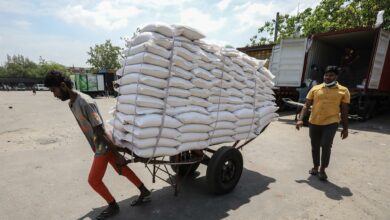South Korea says monitoring North’s economic ‘volatility’

Seoul, July 5 (EFE).- South Korea said Monday it was closely monitoring “volatility” in the prices of goods and foreign exchange rates in the neighboring North facing an economic crisis due to the coronavirus pandemic.
Government spokesperson Lee Jong-jo told reporters that Seoul “is keeping an eye on the volatility of major economic indices, including the prices of goods and currency exchange.”
“We believe that such indices have become more volatile recently,” said the spokesperson for the unification ministry that handles ties with North Korea.
Local news agency Yonhap reported that the spokesperson remarked that the measures adopted by Pyongyang to tackle the pandemic seemed to have affected the North Koreans’ “living to some degree.”
North Korea closed its borders in January 2020 to prevent the spread of Covid-19, which has made the entry of foreign capital and goods into the country difficult and limited the imports it obtains mainly from China.
Media estimates show that the unofficial exchange rates (used in the country’s markets) for the dollar and the yuan, the two most used foreign currencies in the country, may have lost 40 percent of their value against the North Korean won.
Meanwhile, the North Koreans say prices of imported goods have increased by more than 400 percent.
North Korean leader Kim Jong-un had warned in April about the economic ravages of the pandemic.
In June, he admitted that the country was facing “tense” food shortages.
Last week, Kim blamed senior officials of his regime for a “great crisis” due to lapses in implementing national measures to battle the “worldwide health crisis.”
Some experts believe that the “crisis” may have to do with managing the grain reserves controlled by the North Korean army.
The reserves are for the people in times of scarcity.
North Korea, which expects to receive 1.7 million doses of vaccines under the COVAX program, has told the World Health Organization that it has not yet detected a single Covid-19 case after testing some 30,000 people. EFE
asb/pd/ssk





